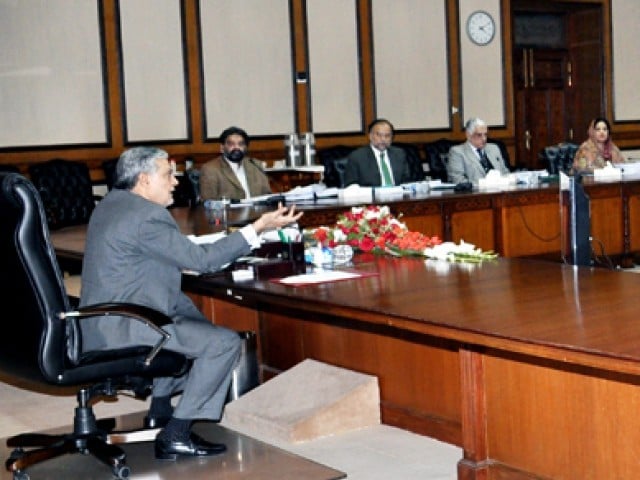
The commission had submitted three proposals for consideration of the Economic Coordination Committee (ECC) in its meeting on September 7, said a senior official of the Ministry of Industries.
The first proposal called for disbursing salaries of PSM employees for at least two months - April and May 2016 - requiring Rs760 million.
The second proposal suggested releasing Rs190 million to PSM in addition to the staff pay to enable the mill to meet its day-to-day expenses.
The last proposal was about giving green signal to the steel mill for disposing of its unfinished and unsold inventory valuing Rs5 billion to pay for its monthly expenditures.
The first proposal was approved whereas the remaining two were turned down. Earlier, in the meeting held on June 28, the commission had proposed that the ECC should allow PSM to sell its inventory to meet daily expenses as the mill had been lying virtually closed for about a year.
The commission pointed out that PSM had not been running since June 2015 because of reduced gas supply from Sui Southern Gas Company. Since the mill had exhausted its finished inventory and it was not allowed to sell unfinished stocks, it had no funds to bear salary expenses of the employees.
The mill needed Rs190 million to meet its day-to-day expenditures and keep the plant operational at the required heating mode, it said.
The Cabinet Committee on Privatization had approved PSM privatisation in an effort to revive the industrial behemoth that has about 16,000 employees.
It noted that despite massive efforts, there had been no serious engagement on the part of Sindh government in response to the offer of the federal government for acquisition of the steel mill. Consequently, the committee asked the PC to press ahead with the PSM divestment plan by following the due process.
Earlier, Pakistan Peoples Party Senator Saleem Mandviwalla had issued a statement, criticising that it was the policy of Pakistan Muslim League-Nawaz to destroy deliberately the national assets like PSM, which had been shut down for not paying the gas bill.
He held the government responsible for destroying the mill that was running at 40% production capacity in 2013, when the PPP government ended its tenure. Instead of reviving the industrial unit, the government closed it forcibly, said Mandviwalla, terming it economic terrorism.
He claimed that the PC did not provide required information to the Sindh government that had written to the commission many times. “Until the provincial government receives the required documents, how can it decide the future of steel mill,” he asked.
Published in The Express Tribune, September 10th, 2016.
Like Business on Facebook, follow @TribuneBiz on Twitter to stay informed and join in the conversation.

















COMMENTS
Comments are moderated and generally will be posted if they are on-topic and not abusive.
For more information, please see our Comments FAQ